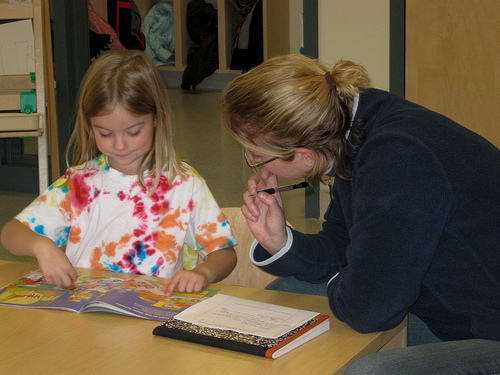    |
|
My philosophy of education is based on the idea that education is a right for all humans. Education is knowledge and knowledge, as they say, is power. Education, learning, and knowledge are what allow us to be successful human beings. Education allows us to learn from one another’s achievements and mistakes; and to be able to grow from each new idea that spurs from those accomplishments and errors are what education is all about. I believe that education must be practiced in a safe, healthy, respectful environment that encourages learning. Each student should feel welcome, safe, and empowered at school. I believe education should be based on existentialism – focuses on the experiences of the individual. Existentialism stresses the importance of the individual and the emotional commitment to living authentically; it also emphasizes individual choice over the importance of rational theories. Since every student has the right to learn, and tend to learn best in their own individual style, teachers should encourage and support that individuality. I believe that teachers must allow students the freedom of choice and provide them with experiences that will help them find the meaning of their lives. I believe that the educative process is the most helpful human enterprise in promoting this personal quest for meaning. Freedom requires students to ask their own questions, conduct their own inquiries, and draw their own conclusions. I believe the purpose of education is to create a base for all students, to give them the tools they need to succeed in society. School should be a place to build self-awareness, self understanding, and self-esteem; a place to escape from all the –isms, to be you and to seek help. I believe that that the purpose of education does not mean mastering factual knowledge. It is important to know that factual information is available, how to find it, and how to apply it successfully. I do believe that it is important to develop an appreciation of knowledge as well. To appreciate knowledge is to appreciate and accept learning. To me an appreciation of knowledge is a feeling, a state of being; it is harder to forget a feeling than a fact. To appreciate learning implies that we realize that we have much to learn and gain from our world and peers around us. I believe that curriculum content should be based on both factual knowledge and life experiences. Life experiences help students’ correlate factual knowledge to their own schemas, creating meaning, therefore making a greater impact and enabling the students to have a deeper understanding of the material. Factual knowledge allows us to be informed and make educated choices. It also creates a jumping off point for discussions, an easy intro. Once that base is established it allows you to discuss the material in a more abstract manner. I believe curriculum should be based on an integrated approach – integrated in learning styles, teaching techniques, and classroom layout to support the needs of all students. Integration allows for growth and inclusion within the subject content, student attribution, teacher involvement, classroom activities, etc. I believe that curriculum should have an emphasis on discovery learning; allowing the students to discover and create meaning to their world with little guidance or outside pressure. I believe that curriculum, as well as education, must be constantly revised. We can only improve if we accommodate our existing schemas, as educators, to keep up with present research and technology. Today’s truths may not be tomorrow’s truths and we need to be sure we are teaching our students accurate, up-to-date information. I believe the role of the teacher has two key functions; mentor and model. I believe that the teacher as a mentor provides the tools, knowledge, and space to learn. As a mentor you should explain and explore subjects that are important to your students and be there for them when they need your assistance and guidance; but not give them the answers. You should set up the classroom so that learning and teaching is reciprocal between all involved, including the teacher. I believe that as a model, the teacher shows the students how to be successful and how to learn. The teacher needs to be that person the students can look up to; as we know, actions speak louder than words. I believe that teachers should treat each student with equity and be prepared to meet their individual needs. Teachers should be aware of their students’ background and be prepared to deal with any situation that occurs in a positive, respectful manner. It should be the role of parents, administrators, and counselors to act as an aide in relation to the role of the teacher. I believe these people have an integral role in the education system to help check and balance the teachers. They can provide informative information, resources, assistance, and viewpoints. And if done correctly all entities will share a common goal for the students and the education system as a whole creating a better, more successful environment for the students. All of these values and thoughts are based on my firm belief that education is a right for all humans; that education promotes knowledge, achievement, growth, and power within us all to be successful. Our education permits us to learn from our past and nurture our future. Let it be our goal to be lifelong learners and to encourage those around us to be as well. |